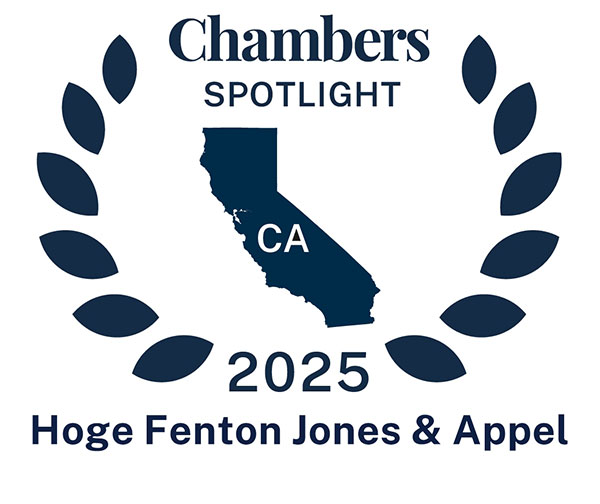News Flash: Court Blocks DOL’s Increased Salary Rule for Overtime Exemption
By Hoge Fenton | 12.1.2016 | Firm Post
Two days before Thanksgiving, a federal court issued a nationwide injunction against the U.S. Department of Labor’s (DOL) increased salary threshold for exempt employees—only 9 days before the new salary rule was scheduled to become effective on December 1, 2016. The new salary threshold would have required that employees who otherwise meet the “duties test” for overtime exemption under the Fair Labor Standards Act (FLSA) be paid a minimum of $47,476 per year to continue to be classified as exempt. Now that the DOL’s new rule has been blocked, the salary threshold remains at $23,660 per year to qualify for an exemption under the FLSA.
For California employers, the salary threshold for the “white collar” exemptions (Executive, Administrative, and Professional Exemptions) will remain at $41,600 per year, but that number will go up to $43,680 per year on January 1, 2017 for employers with 26 or more employees (in connection with an increase in minimum wage). In California, the impact of the DOL’s new salary rule being blocked is that as long as employers continue to satisfy California’s salary threshold for exemption, they will also be in compliance with the salary requirements under federal law. For now. The current injunction is temporary, and it remains to be seen whether it will become permanent and/or whether the DOL will appeal.
Of course, many employers have spent the past several months preparing for the new rule to become effective on December 1, 2016 and have already taken steps to either convert exempt employees to non-exempt hourly status or to increase employee salaries to satisfy the higher threshold of $47,476. Unraveling those actions could create a dilemma for employers as it can be extremely damaging to employee relations to reduce compensation after promising a higher salary. There may be ways to reverse course, but employers would be well advised to proceed with caution and to consult with legal counsel before doing so. Among other considerations, because the current injunction is temporary, it may be that the higher salary threshold will go into effect in the coming months. For employers who have converted employees to non-exempt status, it is important to ensure those employees satisfy the “duties test” for an exemption before taking steps to re-convert the employees back to exempt status.
In short, while the federal court injunction provides relief for many employers, it also creates several questions for how employers who have already made changes in anticipation of the law should proceed. Hoge Fenton will continue to monitor the situation and will provide updates as we obtain further clarity.
For further discussion about the impact of the injunction on California employers, and regarding California minimum wage law in 2017 and beyond, please be sure to attend one of Hoge Fenton’s annual employment law update seminars in January 2017.
The Fine Print.
This e-newsletter is provided as an educational service by Hoge Fenton for clients and friends of the firm. This article is an overview only, and should not be construed as legal advice or advice to take any specific action. Please be sure to consult a knowledgeable professional with assistance with your particular legal issue.









